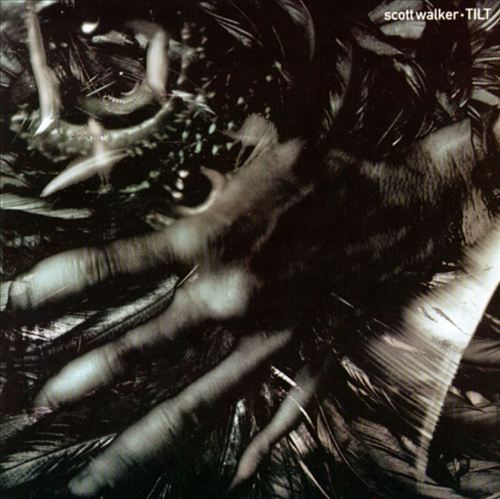“The record company asked me to change my approach. My approach is my approach; we parted.” (Scott Walker on his relationship with Fontana, 2006)
Quite what Fontana thought they were getting when they signed Scott Walker is anybody’s guess. In their defence, if there was ever a year to put out a Walker comeback album, it was 1995, with a sizeable crop of music press darlings, including the likes of Tindersticks, Pulp, My Life Story and The Divine Comedy, wearing his influence on their sleeves, and lesser lights slapping swelling Walkeresque string sections onto bog-standard indie ballads in a desperate bid to be taken seriously.
What Fontana got, of course, was one of the most uncommercial, impenetrable and downright frightening albums of the decade, an album that took the surreal cut-up lyricism of 1984’s Climate of Hunter, fused it with experimental modern composition and industrial soundscapes, and left fans and critics simultaneously appalled, ecstatic, and baffled (“It may be 0/5, it may be 5/5 – it’s impossible to tell” said Select at the time).
All Walker’s work from Climate… onwards can be seen as an ongoing attempt to bury any memory of his former self. That album made it clear in its opening line (“This is how you disappear”); With Tilt, the message is in the name – the title of a previous, hated album (Til the Band Comes In) ripped apart, leaving only its first four letters. And the album’s opening pair of songs makes Walker’s point even clearer: ‘Farmer in the City’ is almost old-school Walker, a beautifully bleak ballad with a soaring string section, a song that would’ve had Fontana executives, if not rushing out to buy new sports cars, then at least breathing sighs of relief; but it’s followed by ‘The Cockfighter’, where eerie disembodied voices suddenly, and terrifyingly, give way to crashing industrial rhythms and lyrics taken from the trial of Adolf Eichmann (“I have a green light for fifty thousand…You were in charge of the rolling stock – do you know what happened to most of the children?”) Hearing it for the first time in 1995 was simply mindblowing, and its powers haven’t waned over 20 years on.
Elsewhere, Tilt is a masterpiece of minimalism, tension and willful sabotage. The pounding bass drum of ‘Bouncer See Bouncer…’ frequently threatens to explode before being pulled back each time, as Walker wails “Spared…I’ve been spared”, that once rich baritone now in a pleading higher register; ‘Face on Breast’ one of the more traditional compositions here (though it’s all relative), is hijacked by (presumably) human screams; ‘Bolivia 95’ begins with smooth saxophone and fretless bass, a nod back to the warped 80s AOR of Climate…, before Walker begins imploring “Doctorie, give me a C for this babaloo”; the beautiful ‘Patriot (A Single)’, isn’t entirely dissimilar to ‘Boychild’, but is in fact an oblique commentary on the first Iraq War (“Oh, the Luzerner Zeitung…never sold out”).
Like Climate…, Tilt ends with Walker accompanied by solo guitar, howling “A-whoooaahhooohh”, before finishing with “I gotta quit, I gotta quit”, in much the same way he crossed the river alone on ‘Blanket Roll Blues’ 11 years earlier. When taken in the context of a dark, disjointed record in which Walker’s voice sounds desperate and ghostly throughout, it was understandably interpreted at the time as a farewell note, but as we now know, Walker came back another 11 years later with a record that made Tilt sound almost conventional. It is, of course, anything but: an album almost completely removed from the world of pop music, and one that, whilst superficially unlistenable, rewards the obsessive, fully immersed listener.




